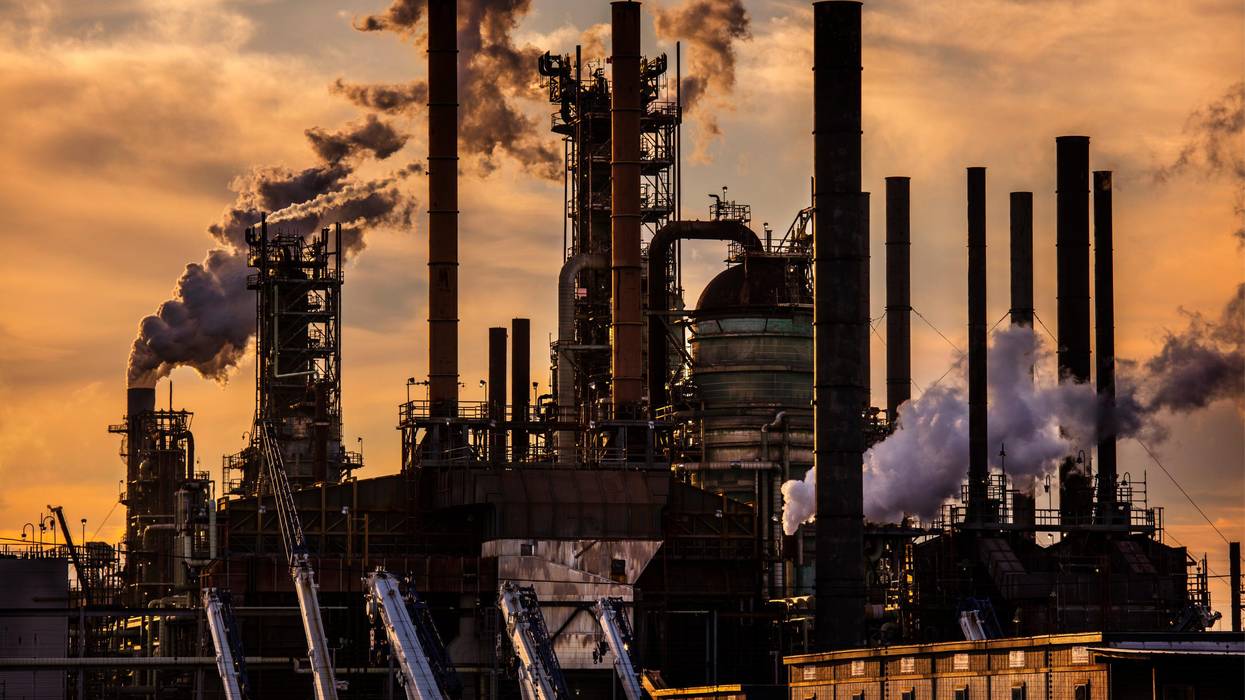"It's clearer than ever that oil and gas companies—the climate arsonists fueling climate chaos—cannot be trusted to put out the fire," David Tong, report author and global industry campaign manager at Oil Change International,
said in a statement. "There is no evidence that big oil and gas companies are acting seriously to be part of the energy transition."
"The Big Oil Reality Check report reveals that oil and gas corporations are more interested in looking like they are acting on climate change than actually acting on climate change."
For its fourth annual
Big Oil Reality Check, Oil Change International judged the oil companies' climate plans and pledges against a set of minimum standards for alignment with the Paris agreement. The standards were divided into three main categories: ambition, integrity, and people-centered transitions.
Under ambition, the companies were assessed on whether they had plans to stop oil and gas exploration, stop approving new extraction projects, decrease production every year through 2030, and stop extraction on a certain date while outlining a long-term plan to end production.
Under integrity, the companies were assessed on whether their emissions-reduction plans included their entire supply chain, whether they relied on carbon capture or offsets, whether their methane-reduction plans were really in line with climate goals, and whether they lobbied or advertised against climate action.
For people-centered transitions, they were assessed on whether they had just transition plans for employees and members of frontline communities and whether they respected human rights overall and the rights of Indigenous peoples, including to free, prior, or informed consent to any fossil fuel activities.
The companies were then rated from "fully aligned" to "grossly insufficient" for how well their plans complied with the Paris goals within the assessment's framework, but all eight companies scored "insufficient" or "grossly insufficient" for a majority of the criteria.
Only one company—Eni—scored above "insufficient" in any category, earning a ranking of "partially aligned" for having greenhouse gas-reduction plans that included its supply chains. The three U.S.-based companies—Chevron, ConocoPhillips, and ExxonMobil—scored "grossly insufficient" for all 10 criteria.
"American fossil fuel corporations are the worst of the worst," Oil Change International's U.S. program manager Allie Rosenbluth said. "Chevron, ExxonMobil, and ConocoPhillips perpetuate harm in frontline communities not only across the U.S. but worldwide."
Oil Change found that six out of the eight companies have official plans to increase oil and gas production. The only two that did not were BP and Shell; however, these companies employ a misleading strategy. They compensate for new oil and gas projects by selling off polluting assets. While the emissions from the sold operations no longer count toward company emissions, they still count toward the planet's total. This practice is out of line with the GHG Protocol on corporate emissions accounting and may violate the United Nations Guiding Principles on Business and Human Rights.
Four of the companies assessed in the report—BP, Shell, Exxon, and Chevron—were also the subject of a recent U.S. House investigation and Senate hearing
detailing how the fossil fuel industry playbook has shifted from outright denial of climate science to greenwashing its activities by presenting itself as part of the solution to the climate crisis while its day-to-day operations continue to raise global temperatures.
"The efforts of climate and social movements have forced oil and gas companies to acknowledge that fossil fuels are dirty and dangerous, leading to a variety of climate pledges and 'plans,'" said Oil Change campaigner Myriam Douo.
"The Big Oil Reality Check report reveals that oil and gas corporations are more interested in looking like they are acting on climate change than actually acting on climate change."
"They spend billions on smoke and mirrors to try to fool us into believing they have solutions for a livable planet when, in reality, they are perpetuating harm to the climate and local communities while trying to suck every last ounce of profit out of their dirty fossil fuel business," Douo concluded.
All told, Rystand energy data suggests that the combined production of the eight companies will be 17% by 2030 than they were last year.
"Such an increase in production on a global scale would put the world on a path towards global heating well beyond 2°C, locking in destruction of vulnerable communities and ecosystems," the report authors wrote.
The report finds that all of the companies intend to rely on unproven carbon capture technology or offsets schemes to meet their claimed emission-reduction goals and have continued to spend money on lobbying against climate action and greenwashing their own activities since the agreement in Paris.
Further, no company has plans consistent with ensuring a just transition or protecting human rights. In one recent and urgent example, ExxonMobil, Chevron, TotalEnergies, BP, Shell, and Eni all continue to provide Israel with crude oil despite "the Israeli military's ongoing assault on Palestinian civilians, ecosystems, and infrastructure in Gaza and mounting evidence of war crimes," a March Oil Change investigation found.
The report comes nearly half a year after world leaders agreed to contribute to "transitioning away from fossil fuels" at the COP28 U.N. climate change conference in Dubai. In light of its conclusions, Oil Change called on governments to take action to further a just transition:
- Stop permitting or approving new fossil fuel projects or infrastructure;
- Set a Paris-aligned date for phasing out fossil fuel production;
- End subsidies and financing for fossil fuels and false solutions like carbon capture;
- Use tax policy to incentivize against investing in fossil fuels;
- Craft a just transition, including by making polluters pay for cleanup and reparations; and
- Passing laws to protect human rights and Indigenous rights and giving communities a legal mechanism to seek redress from corporate polluters.
Oil Change also argued that governments in the Global North should hold companies headquartered within their borders accountable for harm abroad and put money into funds to enable the Global South to transition to renewable energy, adapt to climate change, and pay for inevitable loss and damage.
"This year's Big Oil Reality Check makes it clearer than ever—we cannot trust fossil fuel corporations to do anything but line the pockets of their CEOs and investors at the cost of our climate and communities," Rosenbluth said. "People around the world are rising up to end the era of fossil fuels and build a just energy system that puts climate and communities first."


